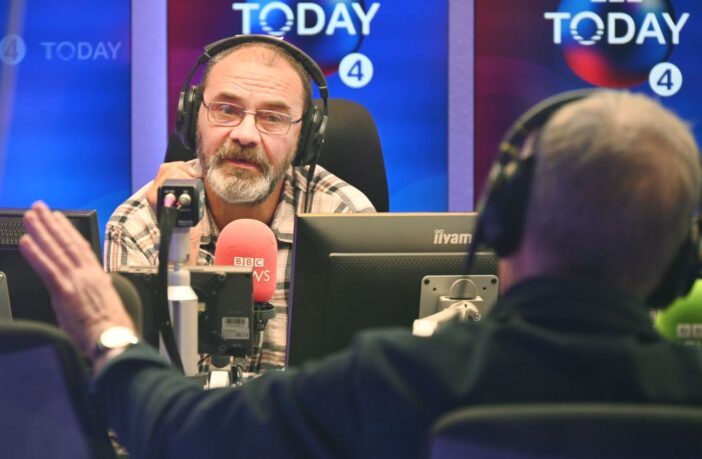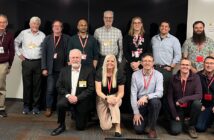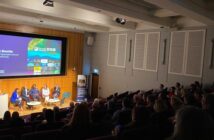Former Open University student Andrew Malkinson said studying for an Open degree while wrongly jailed for rape for 17 years was a ‘lifesaver’.
During his guest-editor slot on the Radio 4 flagship news programme, where he recently interviewed his OU tutor Dr David Giddings, he said the maths and physics modules of his course were what kept him going.
“It gave me direction and structure while I was in there and I thoroughly enjoyed every moment of it,” he said.
He also revealed how much he enjoyed studying astronomy and got lost in books on the subject. During the course of the programme, the BBC team took him to meet with the OU’s professor of planetary science, Monica Grady, at Jodrell Bank in Cheshire.
Andrew had his sentence for rape quashed by the Court of Appeal in July last year but said he sometimes encountered problems with some prison staff in relation to being given access to study.
“There was resistance and they made all kinds of problems over small matters that weren’t really important. I felt they were putting obstacles in the way so there was a lot of frustration, but I was determined to get through it,” he said.
Chief Inspector of Prisons Charlie Taylor said:
“You got a sense from that brilliant interview from Andrew that he got such an enormous amount out of doing that degree, he said it was one of the things that kept him sane while he was doing this extraordinarily long sentence.”
Michala Robertson, Assistant Director for Student Additional Support who also oversees the work the OU does with Students in Secure Environments says there are a number of myths about students in prisons.
She said:
“This includes the myth that prisoners get ‘free degrees’. They don’t. They pay for their fees through student loans once they are six years or less from release and their applications are scrutinised at every stage.
“They also have to complete Level 2 qualifications in Functional Skills. I’ve also heard the accusation that prisoners have ‘all the time in the world’ to study. They don’t.
“While in prison, they need to engage in full-time purposeful activity, either work or some form of education – sometimes equivalent to a 37-hour working week, such as literacy, numeracy and English as a second language or vocational skills such as carpentry or horticulture.
“This doesn’t include Higher Education. It means they study in a 6ft by 4ft shared cell only after work or education has finished.”
She says that OU study in prison is known to reduce re-offending by almost 40% at undergraduate level and evidence suggests there is 0% risk of re-offending at a postgraduate level.
- The OU is the primary provider of Higher Education in prisons and secure units in the UK.
- It has nearly 2,000 students studying across 150 prisons.
You can hear parts of Andrew’s programme in The Best of Today



